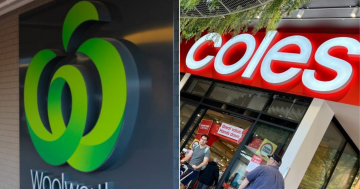
The Food and Grocery Code of Conduct is now mandatory and it’s law. Photo: File.
The Food and Grocery Code of Conduct, signed by the Governor-General and published on the Federal Register of Legislation, is now mandatory.
It will come into full operation on 1 April 2025 and will replace the voluntary code.
The Federal Government said the new code would protect suppliers and farmers and improve supermarket conduct with heavy penalties for breaches of the code.
“The mandatory code will address imbalances in bargaining power between large grocery retailers or wholesalers and their suppliers and includes new obligations to protect suppliers from retribution and strengthened dispute resolution mechanisms for suppliers,” Agriculture Minister Julie Collins said.
“The government is creating an anonymous supplier and whistle-blower complaints pathway through the Australian Competition and Consumer Commission.”
The mandatory code follows extensive consultation with industry.
It will see Coles, Woolworths, Aldi and Metcash subject to multi‑million‑dollar penalties for serious breaches and higher infringement notice penalties for alleged breaches of the Food and Grocery Code and other industry codes.
In response to feedback, the government has brought forward the next statutory review of the code from 2030 to 2027 to ensure it remains effective and fit-for-purpose.
The government is implementing all recommendations of former Labor minister Craig Emerson’s independent review of the code.
The review was established in January 2024 to investigate whether the voluntary code should be toughened after accusations the bigger supermarkets had been price-gouging and not passing on lower farmgate prices to customers.
The voluntary code of conduct was introduced to improve standards of business behaviour in the food and grocery sector but is essentially non-binding.
In response, the government said it would adopt Dr Emerson’s recommendations to toughen the code as part of what it described as a wide-ranging cost-of-living crackdown on anti-competitive behaviour in the food and grocery sector.
The government also passed the Fairer for Families and Farmers Bill to increase penalties for breaches of the code. The Coalition voted against this.
The maximum penalty for the most harmful breaches of the mandatory code by large grocery retailers or wholesalers will now be the greater of $10 million; three times the value of the benefit gained from the contravening conduct; or 10 per cent of turnover in the preceding 12 months.
Assistant Minister for Competition and the Treasury, Andrew Leigh described the price for breaking the code as “serious penalties”.
“They are the highest corporate penalties under any industry code under Part IVB of the Competition and Consumer Act 2010 and will ensure that treating suppliers poorly in breach of the code is not merely a cost of doing business,” he said.
The government said the mandatory Food and Grocery Code was part of a broader competition policy agenda designed to give families and farmers a fair go.
These initiatives include:
- Cracking down on shrinkflation by strengthening the Unit Pricing Code to make it easier for Australians to make accurate and timely price comparisons;
- Working with the states and territories to reform planning and zoning regulations to boost competition and reduce land banking;
- Ensuring the Australian Competition and Consumer Commission will be notified of every merger in the supermarket sector, in the biggest strengthening of Australia’s merger settings in half a century; and
- Providing the Australian Competition and Consumer Commission with additional funding to crack down on misleading and deceptive pricing practices in the supermarket and retail sectors.
Original Article published by Chris Johnson on Riotact.














